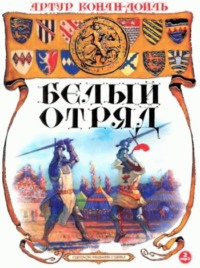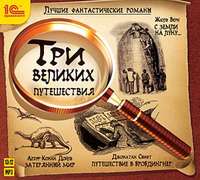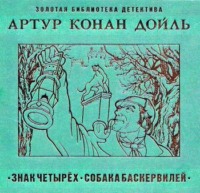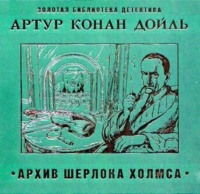 полная версия
полная версияUncle Bernac: A Memory of the Empire
To visit a coast-town, therefore, before I had seen my uncle, or learnt whether my return had been sanctioned, would be simply to deliver myself into the hands of the gens d'armes, who were ever on the look-out for strangers from England. To go before the new Emperor was one thing and to be dragged before him another. On the whole, it seemed to me that my best course was to wander inland, in the hope of finding some empty barn or out-house, where I could pass the night unseen and undisturbed. Then in the morning I should consider how it was best for me to approach my uncle Bernac, and through him the new master of France.
The wind had freshened meanwhile into a gale, and it was so dark upon the seaward side that I could only catch the white flash of a leaping wave here and there in the blackness. Of the lugger which had brought me from Dover I could see no sign. On the land side of me there seemed, as far as I could make it out, to be a line of low hills, but when I came to traverse them I found that the dim light had exaggerated their size, and that they were mere scattered sand-dunes, mottled with patches of bramble. Over these I toiled with my bundle slung over my shoulder, plodding heavily through the loose sand, and tripping over the creepers, but forgetting my wet clothes and my numb hands as I recalled the many hardships and adventures which my ancestors had undergone. It amused me to think that the day might come when my own descendants might fortify themselves by the recollection of that which was happening to me, for in a great family like ours the individual is always subordinate to the race.
It seemed to me that I should never get to the end of the sand-dunes, but when at last I did come off them I heartily wished that I was back upon them again; for the sea in that part comes by some creek up the back of the beach, forming at low tide a great desolate salt-marsh, which must be a forlorn place even in the daytime, but upon such a night as that it was a most dreary wilderness. At first it was but a softness of the ground, causing me to slip as I walked, but soon the mud was over my ankles and half-way up to my knees, so that each foot gave a loud flop as I raised it, and a dull splash as I set it down again. I would willingly have made my way out, even if I had to return to the sand-dunes, but in trying to pick my path I had lost all my bearings, and the air was so full of the sounds of the storm that the sea seemed to be on every side of me. I had heard of how one may steer oneself by observation of the stars, but my quiet English life had not taught me how such things were done, and had I known I could scarcely have profited by it, since the few stars which were visible peeped out here and there in the rifts of the flying storm-clouds. I wandered on then, wet and weary, trusting to fortune, but always blundering deeper and deeper into this horrible bog, until I began to think that my first night in France was destined also to be my last, and that the heir of the de Lavals was destined to perish of cold and misery in the depths of this obscene morass.
I must have toiled for many miles in this dreary fashion, sometimes coming upon shallower mud and sometimes upon deeper, but never making my way on to the dry, when I perceived through the gloom something which turned my heart even heavier than it had been before. This was a curious clump of some whitish shrub – cotton-grass of a flowering variety – which glimmered suddenly before me in the darkness. Now, an hour earlier I had passed just such a square-headed, whitish clump; so that I was confirmed in the opinion which I had already begun to form, that I was wandering in a circle. To make it certain I stooped down, striking a momentary flash from my tinder-box, and there sure enough was my own old track very clearly marked in the brown mud in front of me. At this confirmation of my worst fears I threw my eyes up to heaven in my despair, and there I saw something which for the first time gave me a clue in the uncertainty which surrounded me.
It was nothing else than a glimpse of the moon between two flowing clouds. This in itself might have been of small avail to me, but over its white face was marked a long thin V, which shot swiftly across like a shaftless arrow. It was a flock of wild ducks, and its flight was in the same direction as that towards which my face was turned. Now, I had observed in Kent how all these creatures come further inland when there is rough weather breaking, so I made no doubt that their course indicated the path which would lead me away from the sea. I struggled on, therefore, taking every precaution to walk in a straight line, above all being very careful to make a stride of equal length with either leg, until at last, after half an hour or so, my perseverance was rewarded by the welcome sight of a little yellow light, as from a cottage window, glimmering through the darkness. Ah, how it shone through my eyes and down into my heart, glowing and twinkling there, that little golden speck, which meant food, and rest, and life itself to the wanderer! I blundered towards it through the mud and the slush as fast as my weary legs would bear me. I was too cold and miserable to refuse any shelter, and I had no doubt that for the sake of one of my gold pieces the fisherman or peasant who lived in this strange situation would shut his eyes to whatever might be suspicious in my presence or appearance.
As I approached it became more and more wonderful to me that any one should live there at all, for the bog grew worse rather than better, and in the occasional gleams of moonshine I could make out that the water lay in glimmering pools all round the low dark cottage from which the light was breaking. I could see now that it shone through a small square window. As I approached the gleam was suddenly obscured, and there in a yellow frame appeared the round black outline of a man's head peering out into the darkness. A second time it appeared before I reached the cottage, and there was something in the stealthy manner in which it peeped and whisked away, and peeped once more, which filled me with surprise, and with a certain vague apprehension.
So cautious were the movements of this sentinel, and so singular the position of his watch-house, that I determined, in spite of my misery, to see something more of him before I trusted myself to the shelter of his roof. And, indeed, the amount of shelter which I might hope for was not very great, for as I drew softly nearer I could see that the light from within was beating through at several points, and that the whole cottage was in the most crazy state of disrepair. For a moment I paused, thinking that even the salt-marsh might perhaps be a safer resting-place for the night than the headquarters of some desperate smuggler, for such I conjectured that this lonely dwelling must be. The scud, however, had covered the moon once more, and the darkness was so pitchy black that I felt that I might reconnoitre a little more closely without fear of discovery. Walking on tiptoe I approached the little window and looked in.
What I saw reassured me vastly. A small wood fire was crackling in one of those old-fashioned country grates, and beside it was seated a strikingly handsome young man, who was reading earnestly out of a fat little book. He had an oval, olive-tinted face, with long black hair, ungathered in a queue, and there was something of the poet or of the artist in his whole appearance. The sight of that refined face, and of the warm yellow firelight which beat upon it, was a very cheering one to a cold and famished traveller. I stood for an instant gazing at him, and noticing the way in which his full and somewhat loose-fitting lower lip quivered continually, as if he were repeating to himself that which he was reading. I was still looking at him when he put his book down upon the table and approached the window. Catching a glimpse of my figure in the darkness he called out something which I could not hear, and waved his hand in a gesture of welcome. An instant later the door flew open, and there was his thin tall figure standing upon the threshold, with his skirts flapping in the wind.
'My dear friends,' he cried, peering out into the gloom with his hand over his eyes to screen them from the salt-laden wind and driving sand, 'I had given you up. I thought that you were never coming. I've been waiting for two hours.'
For answer I stepped out in front of him, so that the light fell upon my face.
'I am afraid, sir – ' said I.
But I had no time to finish my sentence. He struck at me with both hands like an angry cat, and, springing back into the room, he slammed the door with a crash in my face.
The swiftness of his movements and the malignity of his gesture were in such singular contrast with his appearance that I was struck speechless with surprise. But as I stood there with the door in front of me I was a witness to something which filled me with even greater astonishment.
I have already said that the cottage was in the last stage of disrepair. Amidst the many seams and cracks through which the light was breaking there was one along the whole of the hinge side of the door, which gave me from where I was standing a view of the further end of the room, at which the fire was burning. As I gazed then I saw this man reappear in front of the fire, fumbling furiously with both his hands in his bosom, and then with a spring he disappeared up the chimney, so that I could only see his shoes and half of his black calves as he stood upon the brickwork at the side of the grate. In an instant he was down again and back at the door.
'Who are you?' he cried, in a voice which seemed to me to be thrilling with some strong emotion.
'I am a traveller, and have lost my way.' There was a pause as if he were thinking what course he should pursue.
'You will find little here to tempt you to stay,' said he at last.
'I am weary and spent, sir; and surely you will not refuse me shelter.
I have been wandering for hours in the salt-marsh.'
'Did you meet anyone there?' he asked eagerly.
'No.'
'Stand back a little from the door. This is a wild place, and the times are troublous. A man must take some precautions.'
I took a few steps back, and he then opened the door sufficiently to allow his head to come through. He said nothing, but he looked at me for a long time in a very searching manner.
'What is your name?'
'Louis Laval,' said I, thinking that it might sound less dangerous in this plebeian form.
'Whither are you going?'
'I wish to reach some shelter.'
'You are from England?'
'I am from the coast.'
He shook his head slowly to show me how little my replies had satisfied him.
'You cannot come in here,' said he.
'But surely – '
'No, no, it is impossible.'
'Show me then how to find my way out of the marsh.'
'It is easy enough. If you go a few hundred paces in that direction you will perceive the lights of a village. You are already almost free of the marsh.'
He stepped a pace or two from the door in order to point the way for me, and then turned upon his heel. I had already taken a stride or two away from him and his inhospitable hut, when he suddenly called after me.
'Come, Monsieur Laval,' said he, with quite a different ring in his voice; 'I really cannot permit you to leave me upon so tempestuous a night. A warm by my fire and a glass of brandy will hearten you upon your way.'
You may think that I did not feel disposed to contradict him, though I could make nothing of this sudden and welcome change in his manner.
'I am much obliged to you, sir,' said I.
And I followed him into the hut.
CHAPTER III
THE RUINED COTTAGE
It was delightful to see the glow and twinkle of the fire and to escape from the wet wind and the numbing cold, but my curiosity had already risen so high about this lonely man and his singular dwelling that my thoughts ran rather upon that than upon my personal comfort. There was his remarkable appearance, the fact that he should be awaiting company within that miserable ruin in the heart of the morass at so sinister an hour, and finally the inexplicable incident of the chimney, all of which excited my imagination. It was beyond my comprehension why he should at one moment charge me sternly to continue my journey, and then, in almost the same breath, invite me most cordially to seek the shelter of his hut. On all these points I was keenly on the alert for an explanation. Yet I endeavoured to conceal my feelings, and to assume the air of a man who finds everything quite natural about him, and who is much too absorbed in his own personal wants to have a thought to spare upon anything outside himself.
A glance at the inside of the cottage, as I entered, confirmed me in the conjecture which the appearance of the outside had already given rise to, that it was not used for human residence, and that this man was only here for a rendezvous. Prolonged moisture had peeled the plaster in flakes from the walls, and had covered the stones with blotches and rosettes of lichen. The whole place was rotten and scaling like a leper. The single large room was unfurnished save for a crazy table, three wooden boxes, which might be used as seats, and a great pile of decayed fishing-net in the corner. The splinters of a fourth box, with a hand-axe, which leaned against the wall, showed how the wood for the fire had been gathered. But it was to the table that my gaze was chiefly drawn, for there, beside the lamp and the book, lay an open basket, from which projected the knuckle-end of a ham, the corner of a loaf of bread, and the black neck of a bottle.
If my host had been suspicious and cold at our first meeting he was now atoning for his inhospitality by an overdone cordiality even harder for me to explain. With many lamentations over my mud-stained and sodden condition, he drew a box close to the blaze and cut me off a corner of the bread and ham. I could not help observing, however, that though his loose under-lipped mouth was wreathed with smiles, his beautiful dark eyes were continually running over me and my attire, asking and re-asking what my business might be.
'As for myself,' said he, with an air of false candour, 'you will very well understand that in these days a worthy merchant must do the best he can to get his wares, and if the Emperor, God save him, sees fit in his wisdom to put an end to open trade, one must come to such places as these to get into touch with those who bring across the coffee and the tobacco. I promise you that in the Tuileries itself there is no difficulty about getting either one or the other, and the Emperor drinks his ten cups a day of the real Mocha without asking questions, though he must know that it is not grown within the confines of France. The vegetable kingdom still remains one of the few which Napoleon has not yet conquered, and, if it were not for traders, who are at some risk and inconvenience, it is hard to say what we should do for our supplies. I suppose, sir, that you are not yourself either in the seafaring or in the trading line?'
I contented myself by answering that I was not, by which reticence I could see that I only excited his curiosity the more. As to his account of himself, I read a lie in those tell-tale eyes all the time that he was talking. As I looked at him now in the full light of the lamp and the fire, I could see that he was even more good-looking than I had at first thought, but with a type of beauty which has never been to my taste. His features were so refined as to be almost effeminate, and so regular that they would have been perfect if it had not been for that ill-fitting, slabbing mouth. It was a clever, and yet it was a weak face, full of a sort of fickle enthusiasm and feeble impulsiveness. I felt that the more I knew him the less reason I should probably find either to like him or to fear him, and in my first conclusion I was right, although I had occasion to change my views upon the second.
'You will forgive me, Monsieur Laval, if I was a little cold at first,' said he. 'Since the Emperor has been upon the coast the place swarms with police agents, so that a trader must look to his own interests. You will allow that my fears of you were not unnatural, since neither your dress nor your appearance were such as one would expect to meet with in such a place and at such a time.'
It was on my lips to return the remark, but I refrained.
'I can assure you,' said I, 'that I am merely a traveller who have lost my way. Now that I am refreshed and rested I will not encroach further upon your hospitality, except to ask you to point out the way to the nearest village.'
'Tut; you had best stay where you are, for the night grows wilder every instant.' As he spoke there came a whoop and scream of wind in the chimney, as if the old place were coming down about our ears. He walked across to the window and looked very earnestly out of it, just as I had seen him do upon my first approach. 'The fact is, Monsieur Laval,' said he, looking round at me with his false-air of good fellowship, 'you may be of some good service to me if you will wait here for half an hour or so.'
'How so?' I asked, wavering between my distrust and my curiosity.
'Well, to be frank with you' – and never did a man look less frank as he spoke – 'I am waiting here for some of those people with whom I do business; but in some way they have not come yet, and I am inclined to take a walk round the marsh on the chance of finding them, if they have lost their way. On the other hand, it would be exceedingly awkward for me if they were to come here in my absence and imagine that I am gone. I should take it as a favour, then, if you would remain here for half an hour or so, that you may tell them how matters stand if I should chance to miss them.'
The request seemed reasonable enough, and yet there was that same oblique glance which told me that it was false. Still, I could not see what harm could come to me by complying with his request, and certainly I could not have devised any arrangement which would give me such an opportunity of satisfying my curiosity. What was in that wide stone chimney, and why had he clambered up there upon the sight of me? My adventure would be inconclusive indeed if I did not settle that point before I went on with my journey.
'Well,' said he, snatching up his black broad-brimmed hat and running very briskly to the door, 'I am sure that you will not refuse me my request, and I must delay no longer or I shall never get my business finished.' He closed the door hurriedly behind him, and I heard the splashing of his foot-steps until they were lost in the howling of the gale.
And so the mysterious cottage was mine to ransack if I could pluck its secrets from it. I lifted the book which had been left upon the table. It was Rousseau's 'Social Contract' – excellent literature, but hardly what one would expect a trader to carry with him whilst awaiting an appointment with smugglers. On the fly-leaf was written 'Lucien Lesage,' and beneath it, in a woman's hand, 'Lucien, from Sibylle.' Lesage, then, was the name of my good-looking but sinister acquaintance. It only remained for me now to discover what it was which he had concealed up the chimney. I listened intently, and as there was no sound from without save the cry of the storm, I stepped on to the edge of the grate as I had seen him do, and sprang up by the side of the fire.
It was a very broad, old-fashioned cottage chimney, so that standing on one side I was not inconvenienced either by the heat or by the smoke, and the bright glare from below showed me in an instant that for which I sought. There was a recess at the back, caused by the fall or removal of one of the stones, and in this was lying a small bundle. There could not be the least doubt that it was this which the fellow had striven so frantically to conceal upon the first alarm of the approach of a stranger. I took it down and held it to the light. It was a small square of yellow glazed cloth tied round with white tape. Upon my opening it a number of letters appeared, and a single large paper folded up. The addresses upon the letters took my breath away. The first that I glanced at was to Citizen Talleyrand. The others were in the Republican style addressed to Citizen Fouche, to Citizen Soult, to Citizen MacDonald, to Citizen Berthier, and so on through the whole list of famous names in war and in diplomacy who were the pillars of the new Empire. What in the world could this pretended merchant of coffee have to write to all these great notables about? The other paper would explain, no doubt. I laid the letters upon the shelf and I unfolded the paper which had been enclosed with them. It did not take more than the opening sentence to convince me that the salt-marsh outside might prove to be a very much safer place than this accursed cottage.
These were the words which met my eyes: —
'Fellow-citizens of France. The deed of to-day has proved that, even in the midst of his troops, a tyrant is unable to escape the vengeance of an outraged people. The committee of three, acting temporarily for the Republic, has awarded to Buonaparte the same fate which has already befallen Louis Capet. In avenging the outrage of the 18th Brumaire – '
So far I had got when my heart sprang suddenly into my mouth and the paper fluttered down from my fingers. A grip of iron had closed suddenly round each of my ankles, and there in the light of the fire I saw two hands which, even in that terrified glance, I perceived to be covered with black hair and of an enormous size.
'So, my friend,' cried a thundering voice, 'this time, at least, we have been too many for you.'
CHAPTER IV
MEN OF THE NIGHT
I had little time given me to realise the extraordinary and humiliating position in which I found myself, for I was lifted up by my ankles, as if I were a fowl pulled off a perch, and jerked roughly down into the room, my back striking upon the stone floor with a thud which shook the breath from my body.
'Don't kill him yet, Toussac,' said a soft voice. 'Let us make sure who he is first.'
I felt the pressure of a thumb upon my chin and of fingers upon my throat, and my head was slowly forced round until the strain became unbearable.
'Quarter of an inch does it and no mark,' said the thunderous voice.
'You can trust my old turn.'
'Don't, Toussac; don't!' said the same gentle voice which had spoken first. 'I saw you do it once before, and the horrible snick that it made haunted me for a long time. To think that the sacred flame of life can be so readily snuffed out by that great material finger and thumb! Mind can indeed conquer matter, but the fighting must not be at close quarters.'
My neck was so twisted that I could not see any of these people who were discussing my fate. I could only lie and listen.
'The fact remains, my dear Charles, that the fellow has our all-important secret, and that it is our lives or his.
'I recognised in the voice which was now speaking that of the man of the cottage.
'We owe it to ourselves to put it out of his power to harm us. Let him sit up, Toussac, for there is no possibility of his escaping.'
Some irresistible force at the back of my neck dragged me instantly into a sitting position, and so for the first time I was able to look round me in a dazed fashion, and to see these men into whose hands I had fallen. That they were murderers in the past and had murderous plans for the future I already gathered from what I had heard and seen. I understood also that in the heart of that lonely marsh I was absolutely in their power. None the less, I remembered the name that I bore, and I concealed as far as I could the sickening terror which lay at my heart.
There were three of them in the room, my former acquaintance and two new comers. Lesage stood by the table, with his fat brown book in his hand, looking at me with a composed face, but with that humorous questioning twinkle in his eyes which a master chess-player might assume when he had left his opponent without a move. On the top of the box beside him sat a very ascetic-faced, yellow, hollow-eyed man of fifty, with prim lips and a shrunken skin, which hung loosely over the long jerking tendons under his prominent chin. He was dressed in snuff-coloured clothes, and his legs under his knee-breeches were of a ludicrous thinness. He shook his head at me with an air of sad wisdom, and I could read little comfort in his inhuman grey eyes. But it was the man called Toussac who alarmed me most. He was a colossus; bulky rather than tall, but misshapen from his excess of muscle. His huge legs were crooked like those of a great ape; and, indeed, there was something animal about his whole appearance, something for he was bearded up to his eyes, and it was a paw rather than a hand which still clutched me by the collar. As to his expression, he was too thatched with hair to show one, but his large black eyes looked with a sinister questioning from me to the others. If they were the judge and jury, it was clear who was to be executioner.







